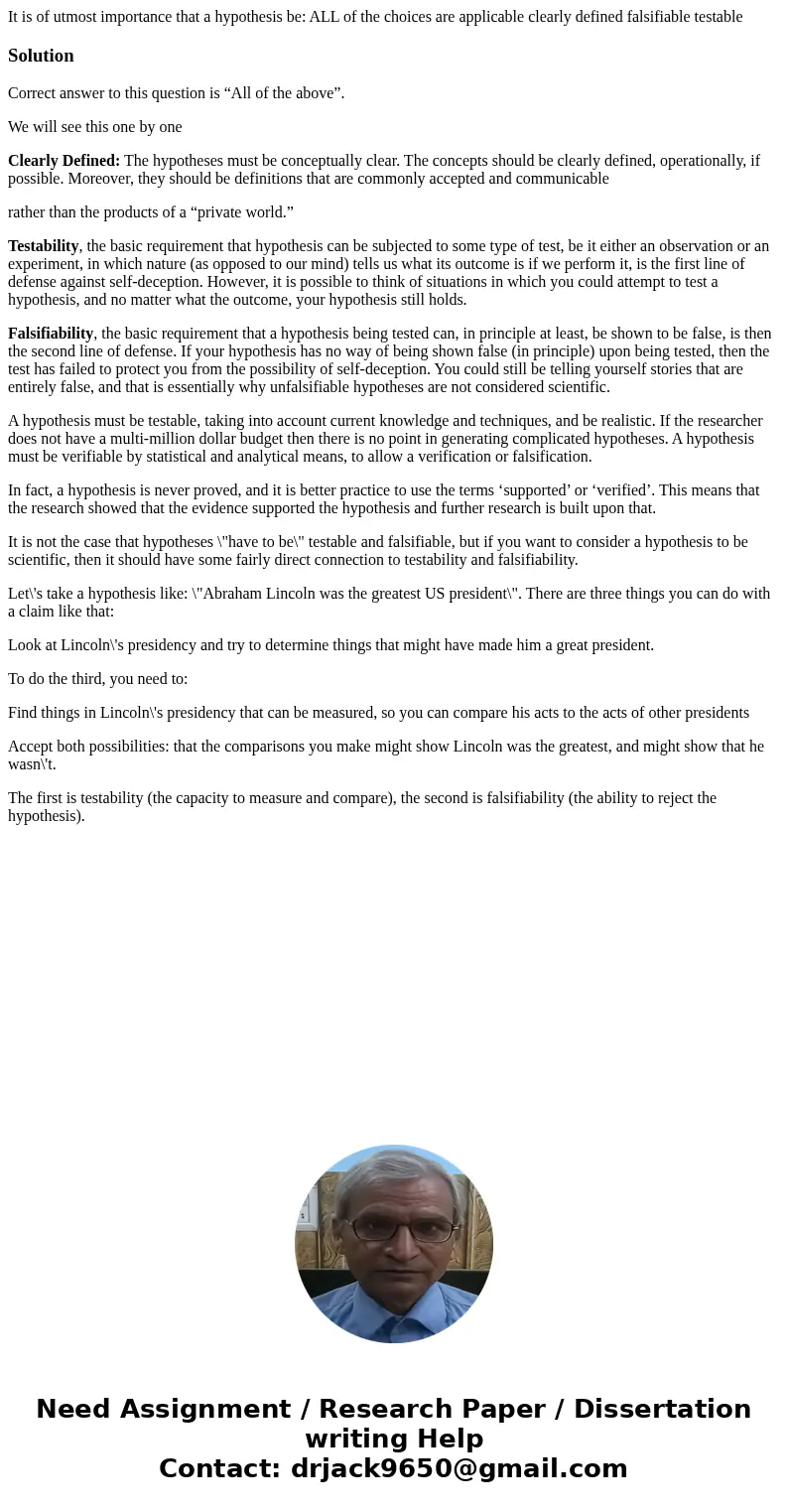It is of utmost importance that a hypothesis be ALL of the c
Solution
Correct answer to this question is “All of the above”.
We will see this one by one
Clearly Defined: The hypotheses must be conceptually clear. The concepts should be clearly defined, operationally, if possible. Moreover, they should be definitions that are commonly accepted and communicable
rather than the products of a “private world.”
Testability, the basic requirement that hypothesis can be subjected to some type of test, be it either an observation or an experiment, in which nature (as opposed to our mind) tells us what its outcome is if we perform it, is the first line of defense against self-deception. However, it is possible to think of situations in which you could attempt to test a hypothesis, and no matter what the outcome, your hypothesis still holds.
Falsifiability, the basic requirement that a hypothesis being tested can, in principle at least, be shown to be false, is then the second line of defense. If your hypothesis has no way of being shown false (in principle) upon being tested, then the test has failed to protect you from the possibility of self-deception. You could still be telling yourself stories that are entirely false, and that is essentially why unfalsifiable hypotheses are not considered scientific.
A hypothesis must be testable, taking into account current knowledge and techniques, and be realistic. If the researcher does not have a multi-million dollar budget then there is no point in generating complicated hypotheses. A hypothesis must be verifiable by statistical and analytical means, to allow a verification or falsification.
In fact, a hypothesis is never proved, and it is better practice to use the terms ‘supported’ or ‘verified’. This means that the research showed that the evidence supported the hypothesis and further research is built upon that.
It is not the case that hypotheses \"have to be\" testable and falsifiable, but if you want to consider a hypothesis to be scientific, then it should have some fairly direct connection to testability and falsifiability.
Let\'s take a hypothesis like: \"Abraham Lincoln was the greatest US president\". There are three things you can do with a claim like that:
Look at Lincoln\'s presidency and try to determine things that might have made him a great president.
To do the third, you need to:
Find things in Lincoln\'s presidency that can be measured, so you can compare his acts to the acts of other presidents
Accept both possibilities: that the comparisons you make might show Lincoln was the greatest, and might show that he wasn\'t.
The first is testability (the capacity to measure and compare), the second is falsifiability (the ability to reject the hypothesis).

 Homework Sourse
Homework Sourse